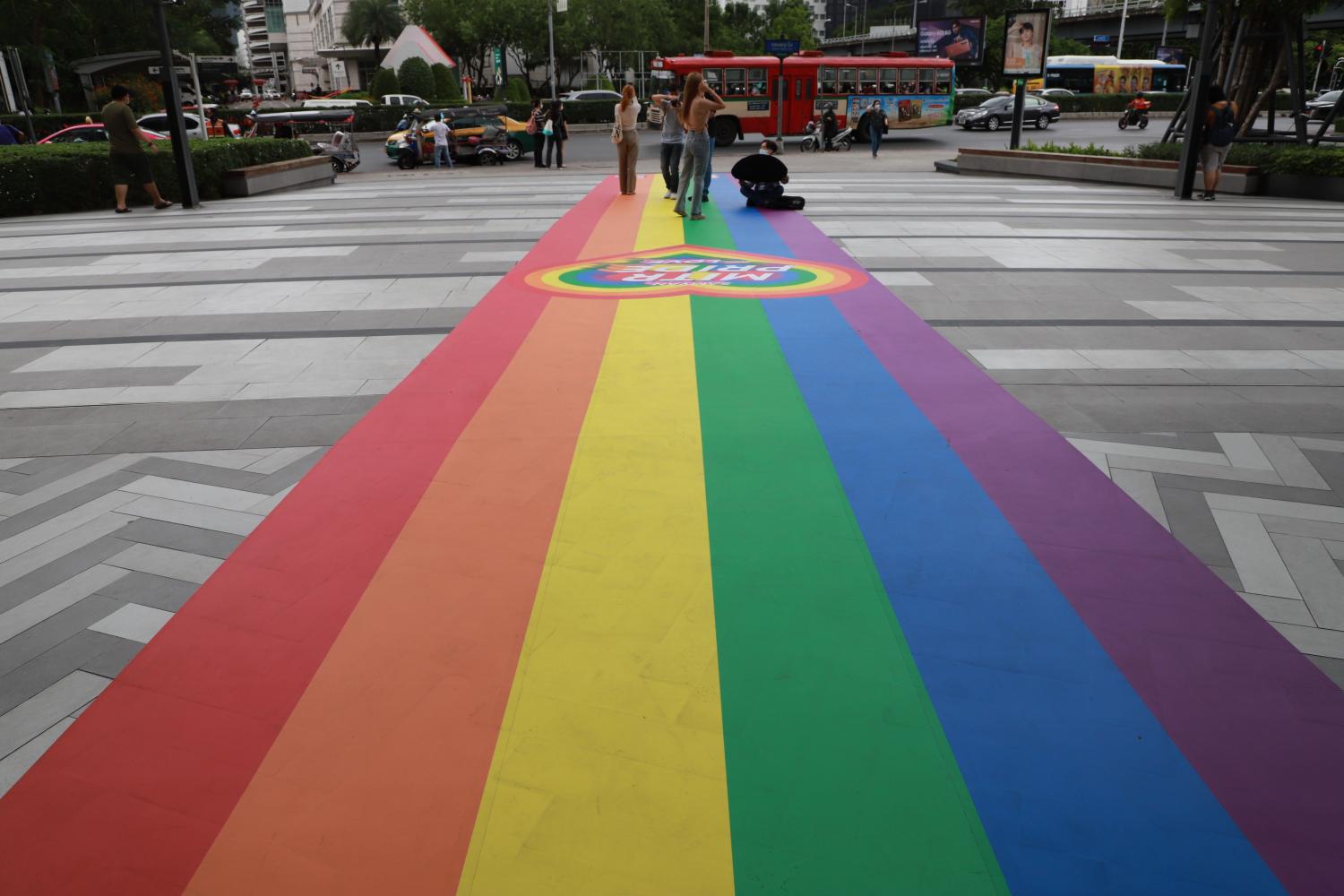Silom Road was packed. I don't think anyone -- not even the organisers -- anticipated such a scene. What a turnout it was on the first Sunday of June when crowds flocked to the area to join the Pride parade. There was music and dancing. Lady Gaga's Born This Way blasted from the stereo. Feathers and sequins sparkled in the late afternoon sun. And in the midst of all the fun, there were voices of the people calling for marriage equality, sex workers' rights and the fall of patriarchy. For equal rights. For equality.
Bangkok Naruemit Pride was perhaps the largest Pride event in Bangkok in recent memory -- and what a diverse crowd it was. Foreigners and Thais, tourists, locals, politicians, activists, beauty queens and influencers were all there. Two women in bridal dresses made Silom their aisle and altar when they wed among the people. There were children cheering on the side as drag queens passed by. The new Bangkok governor, Chadchart Sittipunt, joined in the parade and was followed by a throng of press and admirers. People walked, rode on wheelchairs and some hitched a ride on a convertible. For a day, Silom Road belonged to everyone.
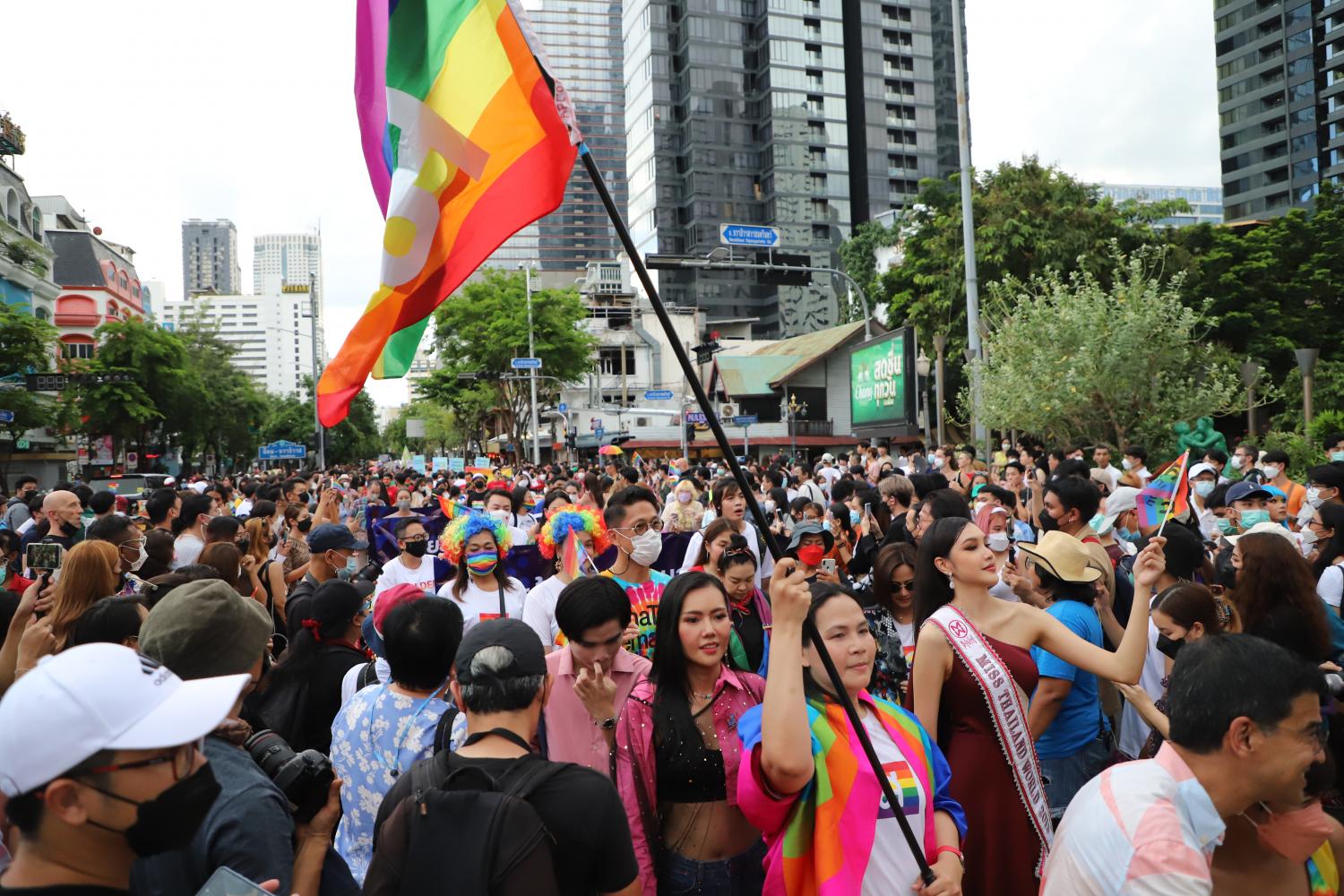
It was a glorious scene -- a successful day to kickstart what turned out to be a packed Pride Month that also coincides with the country opening up following the pandemic. The air of festivity has been palpable as Pride-themed fashion shows, film screenings and parties popped up across town. The transgender beauty pageant Miss International Queen returned with events throughout the month. There was the three-day Bangkok Pride: Rainbowtopia fest at BACC. In several provinces, smaller-scale parades took place -- with a larger one that was planned for Chiang Mai last weekend.
The rainbow has conquered spaces on a scale Thailand has not seen, and not at Pride events only. Looking around Bangkok, it's easy to spot shopping malls decked out in a festive rainbow. Rainbow-themed products are out to lure the baht from people's pockets. Some shops even have a "Pride Month Sale".
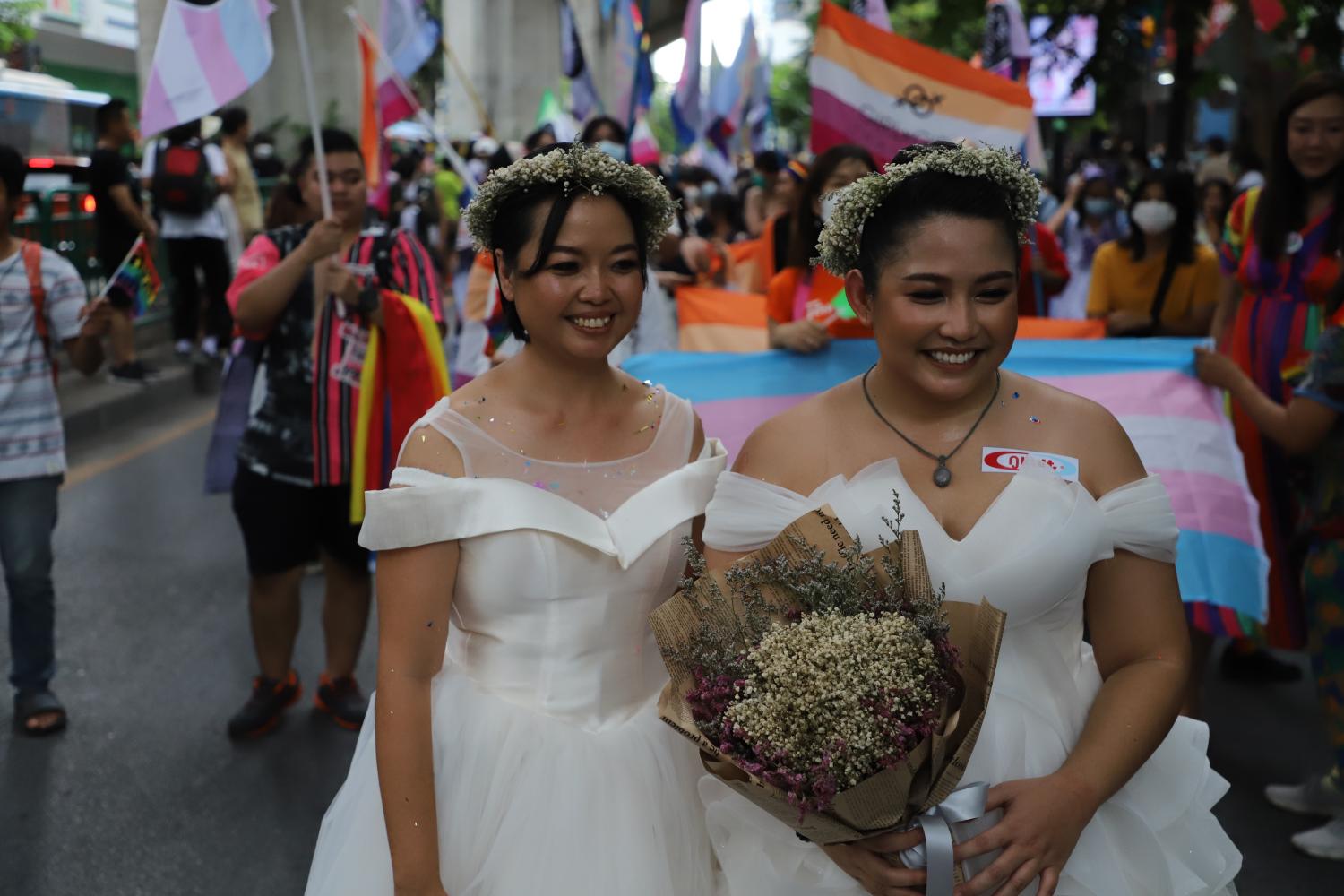
On social media, many businesses and political parties put the rainbow on their Facebook profiles. It was almost fascinating to see people hopping on the Pride bandwagon and flaunting it like the coolest fashion trend. The rainbow -- a symbol of the populations that have been marginalised and discriminated against -- is now celebrated by the public.
For many, it's a show of solidarity, especially if it's accompanied by other actions like companies that announced their LGBTI-friendly policies. At the same time, for many others, it's an empty and insincere gesture of rainbow washing. Corporates that don't have any policies supporting LGBTI employees, political parties that vote no for same-sex marriage, and media organisations that still describe a transgender woman as a man wearing a dress -- even they changed their social media avatars to the colours of Pride.
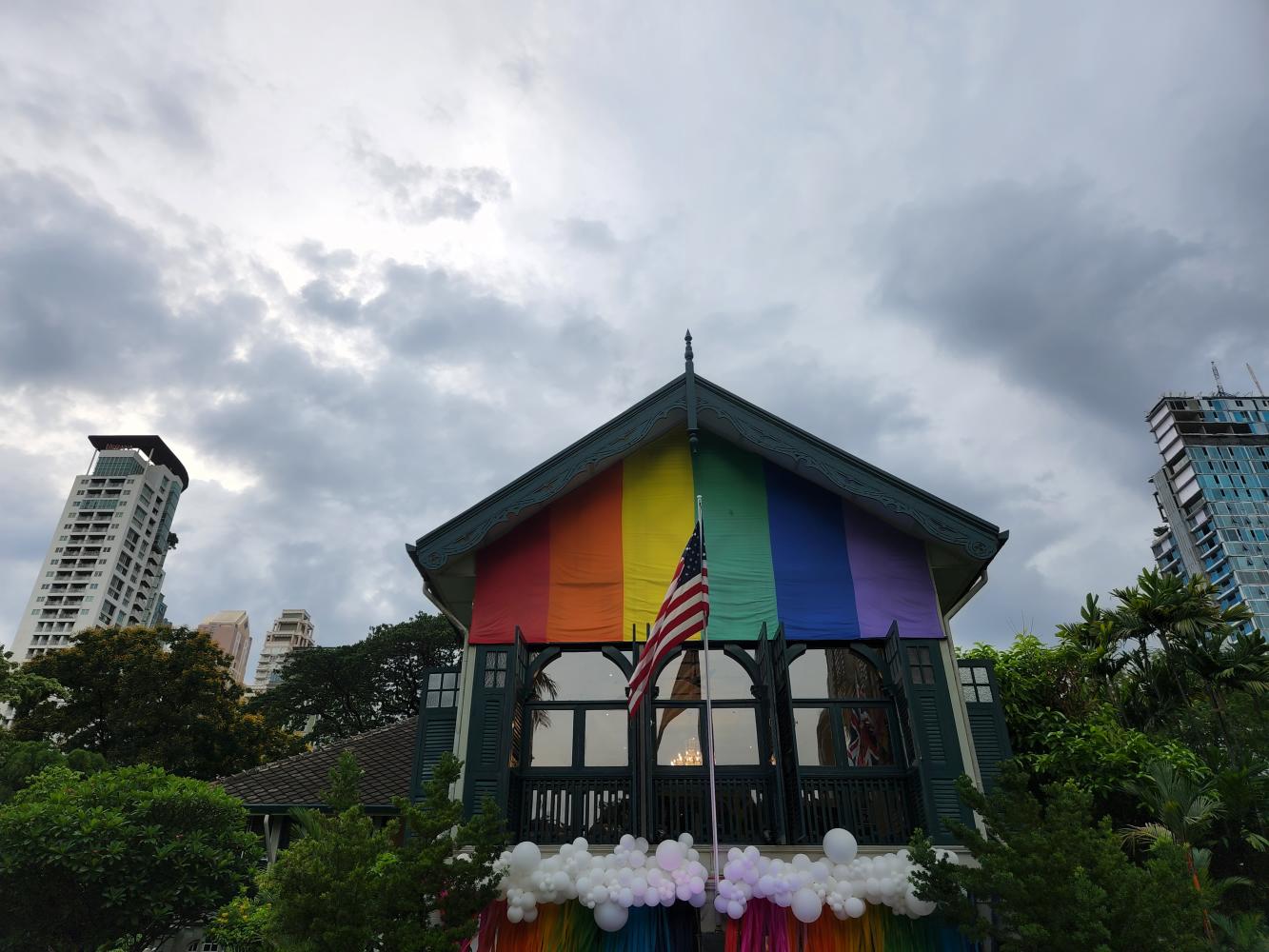
Rainbow washing is problematic, and perhaps this is the first year we're witnessing it on such a large scale in Thailand. The debate of how it's diminishing the message and meaning of Pride has been going on for years. Pride is not simply a celebration or a festivity to be commercialised like Christmas. The spirit of Pride is an unyielding fight and a warm embrace of diverse identities. It's a protest that people have shed tears and blood for. From Stonewall to the rest of the world, Pride is a history of those who have fought and those who are still fighting -- and will continue to fight -- against discrimination and inequality.
This Pride Month, the biggest fight took place in parliament as, coincidentally, a bill supporting marriage equality -- as well as separate bills supporting civil partnership -- got its first reading. This Marriage Equality Bill, heralded by Move Forward Party's MP Tunyawaj Kamolwongwat, was met with both sympathy and resistance. There were voices of approval from other MPs, even those from other parties. And there were also opposing MPs arguing that such a bill, if passed, would violate religious beliefs and heterosexual men and women's rights.
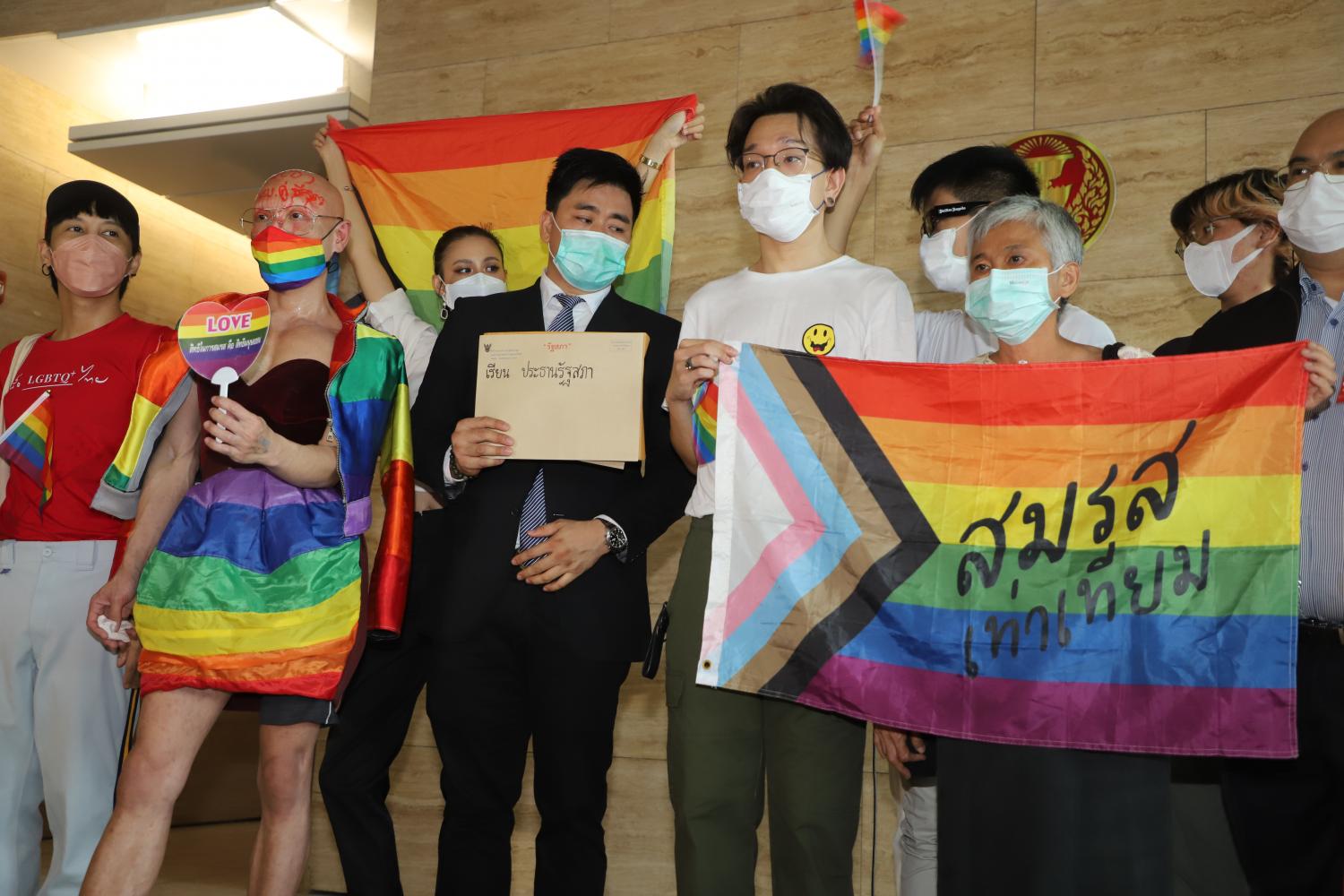
If love wins, who loses? If marriage equality indeed triumphs, then what harm does it bring? Would any institution be destroyed or would society collapse if two persons of any gender can legally tie the knot? Why is there still so much opposition and hate towards it and what do people actually gain from rejecting same-sex couples, if not only to satisfy their own decrepit conviction?
From only a man and a woman can be married, the Marriage Equality Bill would allow two persons of age (regardless of gender) to be legally married and thus entitled to full spousal benefits and recognition. It's better compared to civil partnership bills which still withhold certain rights granted to married couples while also leaving different points up to interpretation.
I remember during the Pride parade people were shouting: "Somros thao thiam! Somros thao thiam!" That's how you say marriage equality in Thai. As I watched the reading, those voices replayed in my head, along with the smiles of a lesbian couple whose happy marriage wasn't recognised by the law. Marriage equality is what the people want and need -- something for which over 355,000 people have also signed their names on an online petition. It's a fundamental right that was never considered for same-sex couples. Instead, it was stripped away from the very beginning. And now, after a long fight, we are one step closer.
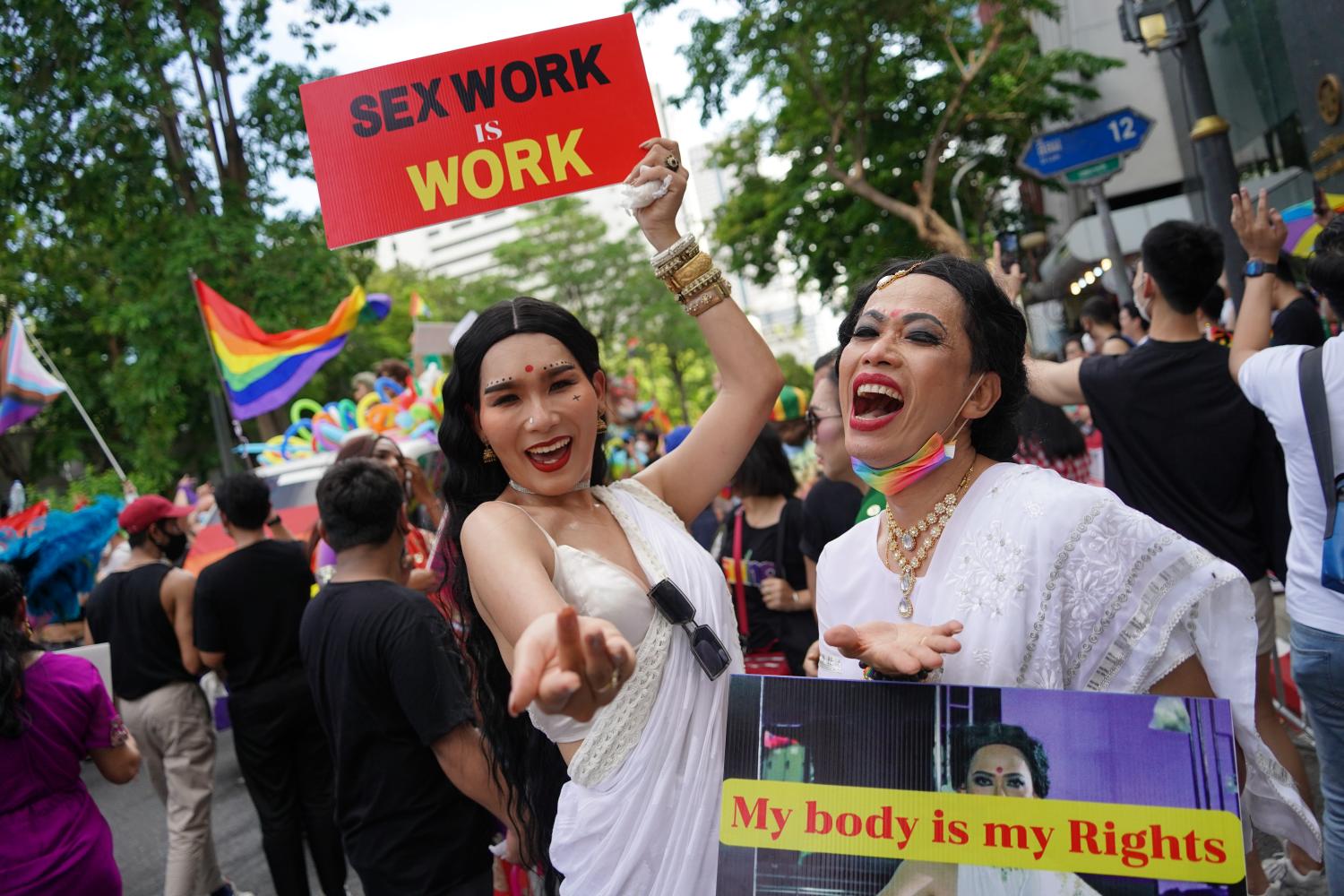
As the reading went on, LGBTI communities and allies crossed their fingers and prayed. Then, it was time to vote. People couldn't really believe their eyes and ears when it was announced that 210 votes were in support of the Marriage Equality Bill and 180 votes against it. The bill's first reading was successful. Activists who gathered outside the parliament were crying as they embraced one another on the joyous occasion. Everyone knew it was too soon to celebrate. There's a long, bumpy road ahead where the bill could be dropped at various stages. Still, this was monumental -- the closest Thailand has ever been to attaining same-sex marriage.
Now, it's the end of a month in which so many things have happened. Where does that leave the future of Thai LGBTI people? The increased rainbow visibility seems to signify a positive turn of tide among public opinion, but will that result in any concrete changes? Will this momentum last or will it fade away like the colours of the rainbow come July 1?
To sign an online petition supporting marriage equality in Thailand, visit support1448.org.


